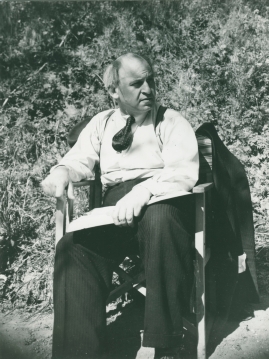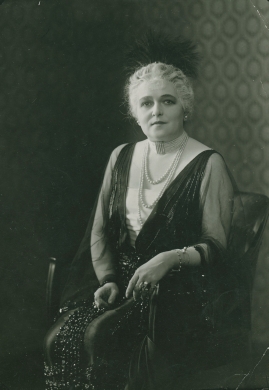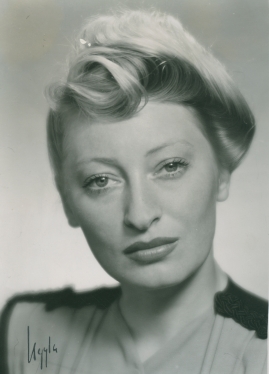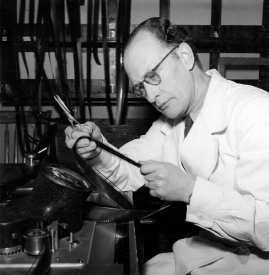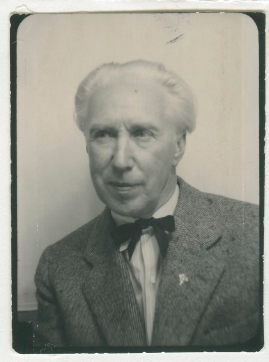Per Lindberg
Table of contents
- Basic facts
- Links and resources
- Biography
- Awards
- Films
- Original work
- Soundtrack listing
- Groups
Basic facts
Media (1)
| Alternative names |
|
|---|---|
| Director |
|
| Screenplay |
|
| Show all films |
Biography
Swedish director and scriptwriter. Born as Per August Lindberg in Stockholm. Died in Stockholm. Son of the actors August and Augusta Lindberg and brother of the scriptwriter and director Stina Bergman.-Per Lindberg was one of the misunderstood geniuses of Swedish cinema. He was the son of well-known actors and the brother-in-law of the author Hjalmar Bergman. Lindberg's dream was to create a people's theatre where the best quality productions would be performed to the masses. He started his career as a highly gifted stage director with continental European theatres...
Biography
Swedish director and scriptwriter. Born as Per August Lindberg in Stockholm. Died in Stockholm. Son of the actors August and Augusta Lindberg and brother of the scriptwriter and director Stina Bergman.
-
Per Lindberg was one of the misunderstood geniuses of Swedish cinema. He was the son of well-known actors and the brother-in-law of the author Hjalmar Bergman. Lindberg's dream was to create a people's theatre where the best quality productions would be performed to the masses. He started his career as a highly gifted stage director with continental European theatres as his major source of inspiration, particularly the stage work of Max Reinhardt and the German cinema of the 1920s.
In the same decade Lindberg was affiliated with the newly started Bonnier Film Company which, under the executive leadership of Karin Svanström, produced popular film versions of books published by the Bonnier publishing house. Lindberg directed the first two of the company's productions, the farce Anna-Clara och hennes bröder ('Anna-Clara and Her Brothers,' 1923) and the drama The Norrtull Gang (Norrtullsligan), based on the novel by Elin Wägner. The latter was an especially ambitious production with a screenplay by Hjalmar Bergman and such acting greats as Tora Teje and Inga Tidblad in leading roles. For both of these productions Lindberg put a great deal of work into the visuals; in The Norrtull Gang there was a crowd scene shot at Stockholm Central Railway Station with hundreds of extras playing secretaries. Because a dream sequence was cut from Anna-Clara och hennes bröder, Lindberg demanded that his name be removed from the credits. It is unclear, however, if this controversy was a reason behind the brevity of Lindberg's 1920s cinema career, but he did return to the stage after making only two Bonniers films. By contrast, it was with enormous enthusiasm that he immersed himself in the newly started Radio Theatre whose executive producer he was between the years 1929 and 1931.
Also in 1931 Lindberg staged a modernised version of the classic operetta "The Merry Widow" ("Den glada änkan") starring Gösta Ekman and Zarah Leander at the Stockholm Concert Hall, a venue rented by Lindberg and Ekman to realize their ambition of a people's theatre. This "Functionalist Widow" production was part of that dream. Shortly after that, the two artists offered to take over directorship of the Royal Dramatic Theatre. The proposal was declined but Lindberg was offered to direct productions there. He declined the offer on the grounds that the Royal Dramatic Theatre was "far too bureaucratically run to serve as the setting for what I regard as sound theatrical creativity".
In 1939 Karin Svanström, now at Svensk Filmindustri, bravely entrusted the directorship of another film project to Lindberg. This time it was the thriller Gubben kommer ('The Old Man is Coming'), based on a novel by Gösta Gustaf-Janson and starring Victor Sjöström. In all, Lindberg directed four films for SF, among which were Juninatten ('June Night,' 1940) with Ingrid Bergman and Stål ('Steel,' 1940) which for a change was about Swedish working class people. In the year 1941 Lindberg made two films for the newly started company Lux Film, I paradis... ('In Paradise...') and Det sägs på stan ('The Talk of the Town'), writing both screenplays himself. As luck would have it, both movies opened in Stockholm on the same night. This might be one of the reasons critics responded so negatively to them. I paradis... was dismissed as an erotic soap opera and Det sägs på stan, meant to be a thriller about small town gossip, was panned for its chaotic visuals.
Lindberg later wrote a screenplay after a novel called "Tänk, om jag gifter mig med prästen" ('Imagine Me Married to the Minister') which was never filmed. When this novel by Ester Lindin finally was adapted for the screen in 1941, the script used was penned by its director, Ivar Johansson, while Lindberg served on the production briefly as production manager. Per Lindberg devoted most of the rest of his career to writing. Before his untimely death at the age of 54, he published a biography of his friend Gösta Ekman.
Mikaela Kindblom (2011)
(translated by James Schmale)
Films
| Director |
|
|---|---|
| Screenplay |
|
| Production Manager | |
| Film Editor |
|
| Screenplay not used |
